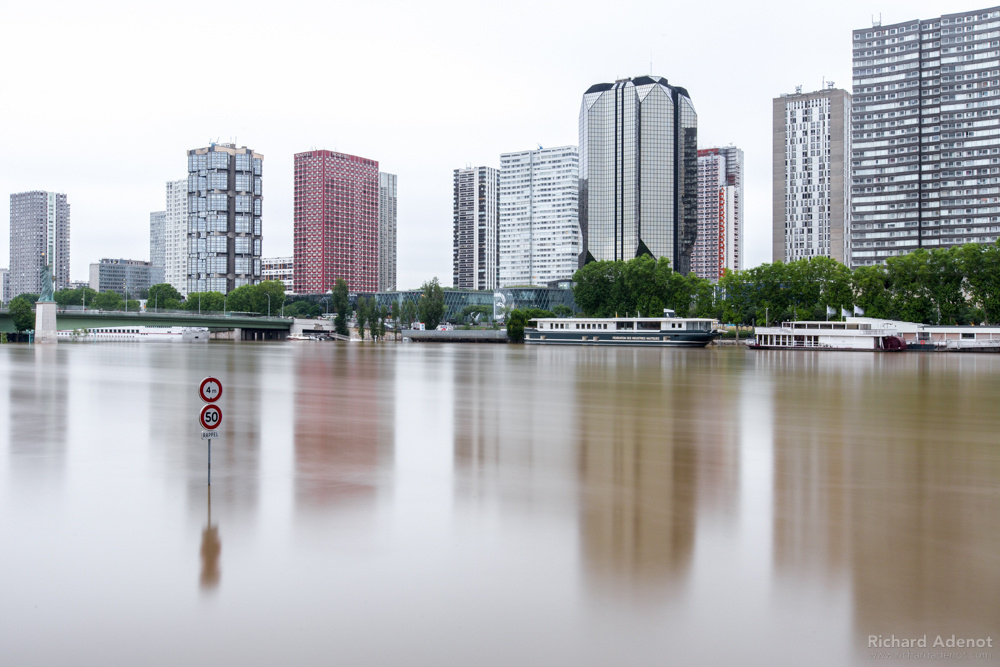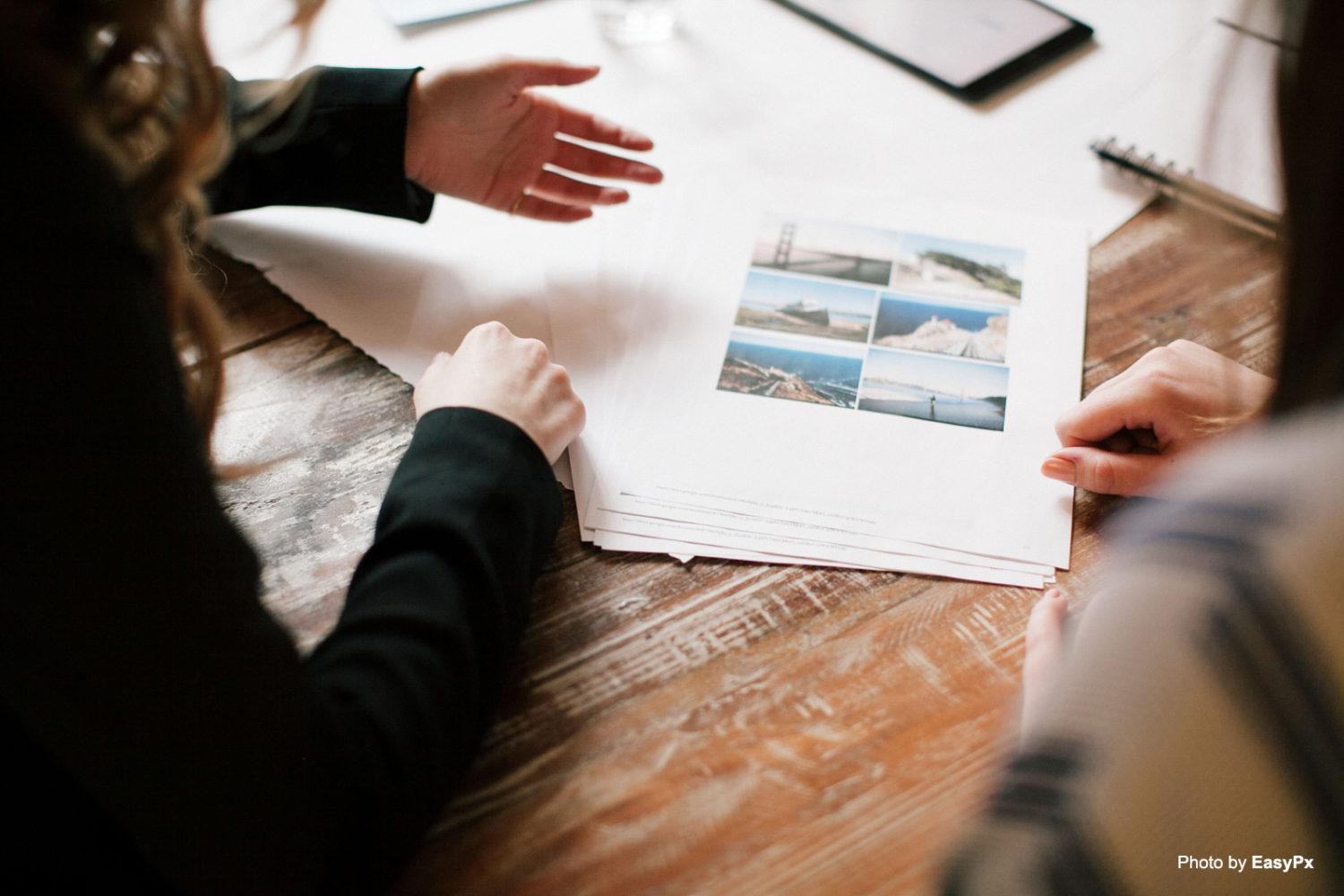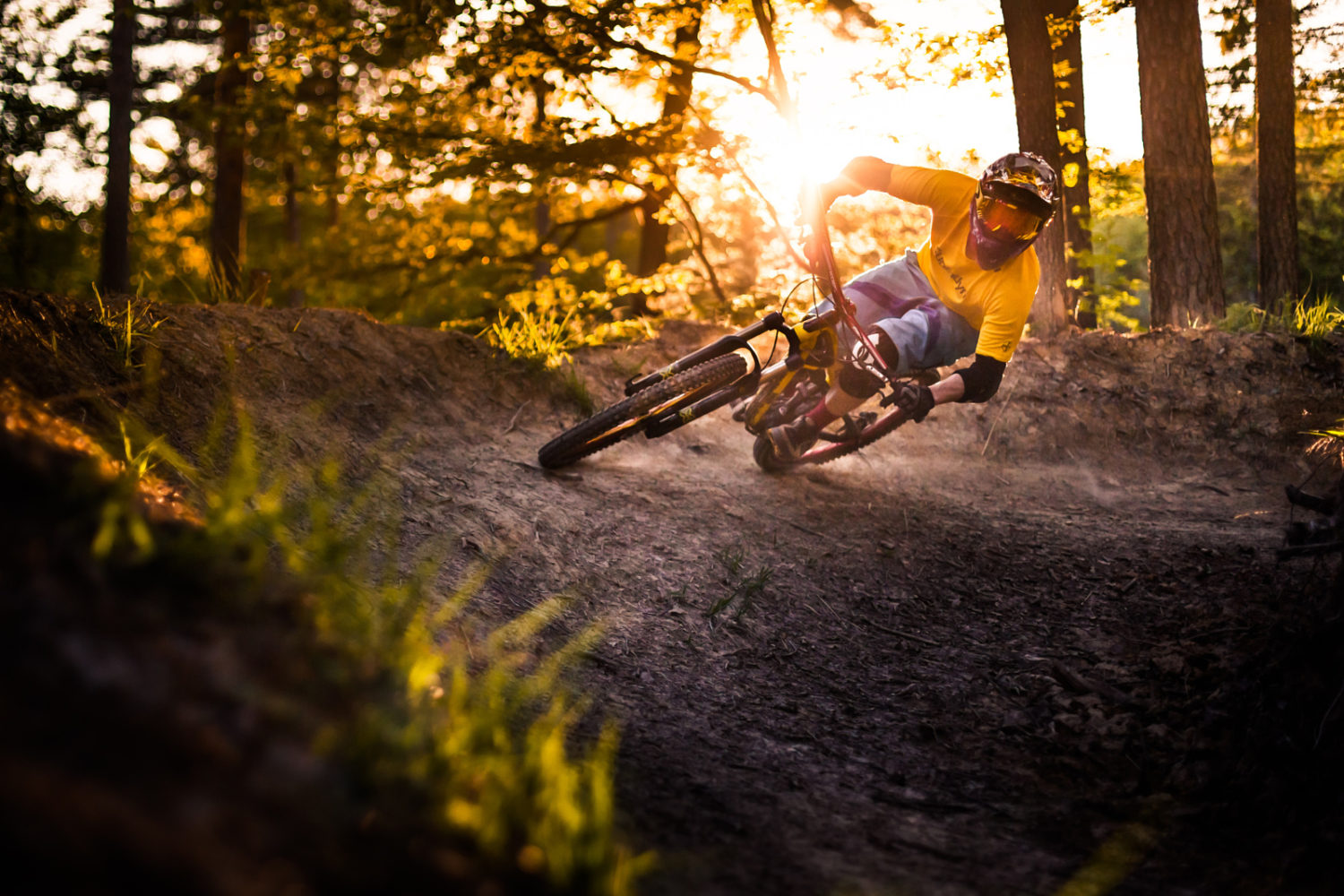Richard Adenot is a Character Effects Supervisor at Illumination MacGuff, the company behind the “Despicable Me” franchise, “The Minions Movie” and the soon-to-be-released “The Secret Life of Pets”. He also owns a photography business in Paris, and is available for both indoor and outdoor portraits, holiday photography, or photojournalism of bigger events, such as weddings or other corporate events. To see more of his work you can follow him here on 500px, or find him on Twitter, Instagram, and Facebook.
Recently, when Paris was struck with severe flooding and rain, Richard dared to venture out to capture pictures of what the city looks like submerged in chest-deep water. Read on for the story behind his shots, and get insights on how to safely document and take photos during a natural disaster.
There used to be a road here!
While taking this long exposure shot, the local news came by. I ended as part of the scene on the live news on Canal+, a major French channel.
A few days ago, we had a crazy flood in Paris. The Seine rose by a whopping 6.10m (20 feet for you, imperial friends). The flood overflowed the banks. It depraved people of electricity. It flooded buildings, public transports, and businesses. It was a rather destructive flood, especially for cities outside of Paris where entire towns—as I am writing this—are still chest-deep underwater.
A friend had told me about this boat, I had to see it for myself. I wonder how it even gets under bridges when the city is not flooded.
An event like this is pretty rare. The last time the Seine got this high was more than 30 years ago. While it is exciting to experience, it was also quite troublesome for me.
You see, I live right next to the Seine.
A few extra centimeters of water, and I would have been stuck at home with my wife and toddler.
Tuning into reliable sources like the news was helpful, but the media doesn’t always know everything. So when you see the city installing flood gates at many strategic points and bricking windows of public buildings, your brain starts going into safety and survival mode. At some point, you start thinking of what to do—gather supplies, or trust the news and see how the situation evolves?
The Seine felt twice as wide as usual. It was quite the sight.
Once the situation had been stabilized, I wanted to document it and not wait another 30 years or so for a similar situation. So I ventured out with one goal in mind: To document the flood without getting distracted by the gorgeous architecture of the city.
Gear used:
CANON 6D
CANON EF 16-35mm f/2.8L II USM
CANON EF 70-200 mm f/2.8L USM
Lee Filters Big Stopper + mount
Neewer Timer Remote (B005LT7CE2)
MEfoto roadtrip – carbon
Black Rapid RS-Sport Strap
Domke J-5XB shoulder bag
A cheap backpack for tripod accessories, water and snacks
This speed limit sign has no road to belong to.
One of the key elements for me and my photojournalism was to do my homework. By this, I mean finding out what was happening and where, looking at Twitter feeds, seeing what other photographers are doing and where, seeing where some failed and where others succeeded, and trying to understand why.
Another important aspect was location scouting. The flood was a slow-going process, and it was not yet at its peak, so I had time to plan and made use of it. Prior to taking my gear out, I spent an hour by bike and on foot, going around the the Western part of Paris (where the Eiffel Tower is). With my phone, I took pics of locations I liked, and then I went home to continue with my homework online, as mentioned in the above paragraph. Not only did that allow me to find exquisite spots and angles to take pictures of, but it also allowed me to get in the flow (pun intended), and get that creative juice going.
I met the owners of this car. They told me they had to go and smash the windows to let water in so that the car would not float away, and to make sure it would stay put. As you can see in the picture, on the bark of the left tree, the water had started going down. The day before, this car could barely be seen.
That said, once you’re out and have done your homework, feel free to explore, loosen up, and wander around. There might be a shot nearby that you might miss otherwise.
Even Notre Dame had closed it doors as water had found its way into a room containing a power transformer.
Keep in mind though, that the longer you wait, the more likely local law enforcements will seal off potential dangerous areas to the population. So if you want prime shots, act quickly, but venture at your own risk.
Boat owners were trying to tie their boats to whatever they could. In this case, the stone stair ramp.
You should also check the weather forecast. It was going to be an overcast weekend with rain and lighting, so I planned my excursion when no rain was scheduled. Had it rained, I would have been careful about my gear. The body and lenses I use are weatherproof, so it would have most likely been fine. An umbrella could have done the trick, if need be. Some bags come with a waterproof cover to prevent your gear from getting wet. The only real problem would have been falling in the water, for obvious reasons.
It almost felt as the statues were desperately trying to hammer the water down, with little success. See the brick wall in the back? You can under normal circumstances walk there freely.
Finally, you hear this often but usually forget—bring water and snacks! I walked 30 kilometers over the weekend to get these shots, and 20 of them were taken on the same day. The last thing you want is dehydration and hypoglycemia. If you’re in a city, you could always stop somewhere, but it’s less precious time behind the camera.
The Louvre had closed their doors over the weekend, and moved more than 150,000 valuable items to an upper level, as the water could come from the ground and walls—same level as the Seine.
I really hope this guide has been helpful. If you ever are in a situation where nature goes nuts keep in mind though, that it is mother nature we are talking about, avoid putting yourself in unnecessary danger in unpredictable environments- that picture may not be worth it.
If you want to see the full album of the photos I took, you can find it on my Facebook page.
By the way, some of you might have read my previous article, Available Vs ‘Available’ Light: Understanding Off-Camera Flash. Unfortunately, my grandfather seen in the pictures passed earlier this year. I am happy to have taken and shared this photograph of him. Photography is hard work, but make sure to give back when you can.














Leave a reply